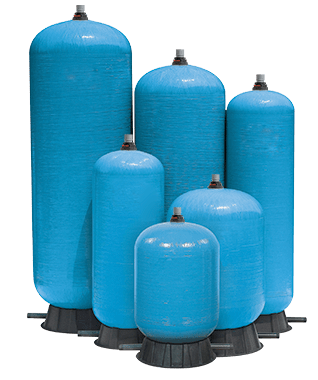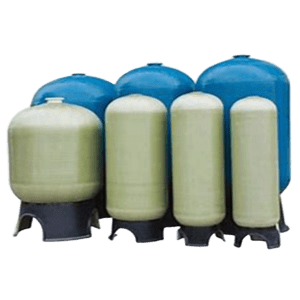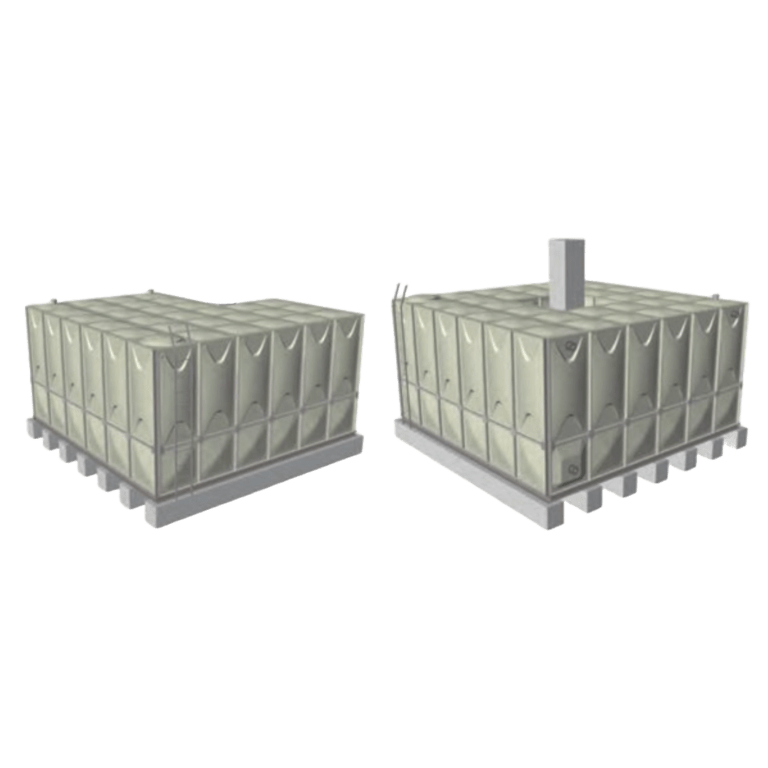Reliable Pressure Vessels and Storage Tanks for Your Waterworks Needs
Welcome to our comprehensive guide on pressure vessels and storage tanks, essential components in domestic waterworks systems. Whether you’re a homeowner, contractor, or facilities manager, understanding their importance and functionality is crucial for maintaining a reliable water distribution system.
Pressure vessels and storage tanks
De-mineralization systems

➜ Pressure vessels are most often used in domestic waterworks applications. Their main function is to balance and maintain a constant pressure in the water distribution system. They serve as water tanks and protect your pump from frequent switching, which could lead to rapid wear. Pressure vessels are most often made of steel and can be purchased in various sizes and volumes.
➜ You can find three types of pressure vessels on the market, distinguished from each other by their internal arrangement and mean of operation:
- pressure vessel with replaceable bladder
- pressure vessel with diaphragm
- single compartment pressure vessel without bladder or diaphragm
What are Pressure Vessels and Storage Tanks?
Pressure-vessels and storage tanks are integral parts of waterworks systems, designed to store and regulate water pressure effectively. They come in various sizes and materials, with steel being a common choice due to its durability and strength.
Where are They Used?
These vessels find widespread application in domestic waterworks settings, serving homes, apartments, commercial buildings, and industrial facilities alike. They play a vital role in maintaining consistent water pressure throughout the distribution network, ensuring reliable access to water for various purposes.
Why are They Used?
Pressure Regulation: The primary function of Vessels is to balance and maintain a constant pressure within the water distribution system. By absorbing fluctuations in pressure, they prevent excessive strain on pumps and pipes, thus extending their lifespan.
Protection for Pumps: Frequent switching of pumps without pressure vessels can lead to rapid wear and tear. Pressure vessels act as a buffer, reducing the need for constant pump cycling and protecting them from premature failure.
Storage: Storage tanks, a subset of pressure vessels, provide additional benefits by storing water for later use. This proves invaluable in situations where water demand fluctuates or during emergencies, ensuring a continuous water supply.
Types of Pressure Vessels
MEA Water have Different Types of pressure vessels.
Pressure Vessel with Replaceable Bladder: These vessels feature a replaceable bladder inside, which separates the water from the vessel’s outer shell. The bladder expands and contracts as water pressure changes, maintaining consistent pressure levels.
Pressure-vessel with Diaphragm: Similar to those with replaceable bladders, these vessels utilize a flexible diaphragm to separate water and air. The diaphragm flexes to accommodate pressure variations, offering reliable pressure regulation.
Single Compartment Pressure-vessel without Bladder or Diaphragm: While less common, these vessels rely on a single-compartment design without internal separation. They are suitable for applications where simpler pressure regulation is sufficient.
Benefits of Pressure Vessels and Storage Tanks


Extended Equipment Lifespan: By reducing pump cycling and pressure fluctuations, pressure-vessels contribute to the longevity of pumps, pipes, and other system components.
Improved Performance: Consistent water pressure ensures optimal performance of water-using appliances, such as showers, faucets, and irrigation systems.
Cost Savings: The prevention of premature equipment failure and the efficient use of water result in long-term cost savings on maintenance and utility bills.
Emergency Preparedness: Storage tanks provide a reserve of water for emergencies, ensuring continuity of water supply during power outages or disruptions to the municipal water system.
In conclusion, pressure vessels and storage tanks are indispensable components of domestic waterworks systems, offering benefits such as pressure regulation, pump protection, and emergency water storage. Investing in quality vessels ensures the reliability and efficiency of your water distribution infrastructure for years to come.


